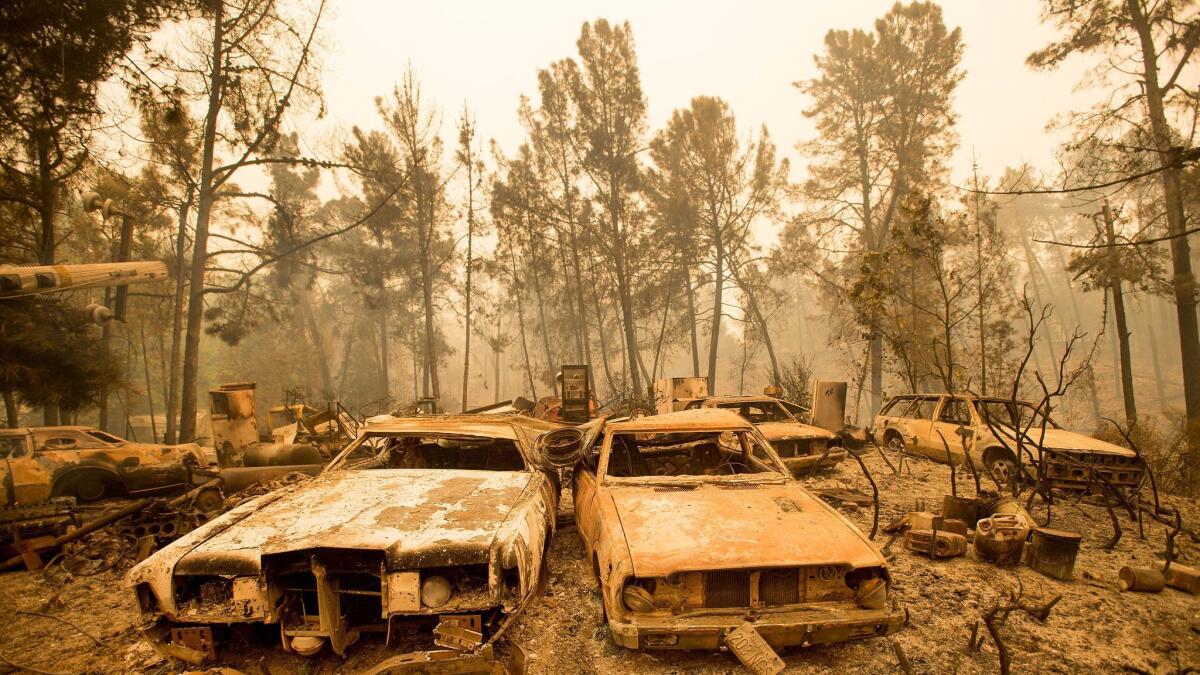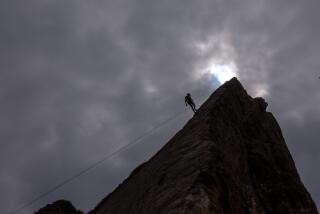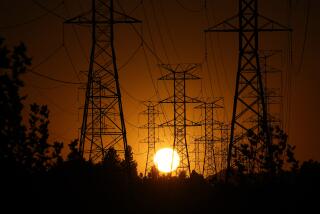As heat persists, California wildfire threat grows

A punishing heat wave that brought record temperatures to California this week may be easing, but the risk of wildfire was expected to grow Thursday as a result of continued warmth, increased winds and lush ground cover, according to the National Weather Service.
On Wednesday, the weather service issued a red flag warning for parts of Northern California through Thursday afternoon. The warning includes the northern Sacramento Valley, where triple-digit heat, strong winds and low relative humidity have created a potent mix for fire.
For the record:
3:51 a.m. Nov. 16, 2024An earlier version of this article stated that a 93-year-old heat record at Fresno Yosemite International Airport was broken Tuesday when the thermometer hit 110. The previous record was set 97 years ago.
In Southern California, conditions have yet to meet the threshold for a red flag warning, but the weather service did say the region should prepare for the increased risk of fire.
“While winds have been relatively light so far this week, onshore flow is expected to strengthen on Thursday,” read a statement from the Oxnard office of the NWS. “With this expected wind increase, continuing hot and dry conditions, and drying fuels/vegetation, the risk of extreme fire behavior will be on the rise.”
Officials said a fire weather watch will be in place through Thursday for the Antelope Valley and interior mountains – where the benefits of a coastal breeze are muted.
On Wednesday, state fire officials warned that heavy rains over the winter and spring did not remove the risk of summer wildfires.
“We are asking that residents not be lulled into a false sense of security on the heels of an exceptionally wet winter,” said Ken Pimlott, chief of the California Department of Forestry and Fire Protection in a statement Wednesday. “The abundant dead grass will only serve as a fuse to the heavier vegetation still suffering lasting effects of five years of extreme drought.”
In the Sacramento Valley, temperatures could reach as high as 112 degrees through Saturday, while wind gusts could hit 30 mph in the foothills. The foothills are also an area where heavy rains have enriched layers of now-drying brush and vegetation — ready fuel for flames.
The situation is just as dire to the south. In the San Joaquin Valley, a 97-year-old heat record at Fresno Yosemite International Airport was broken Tuesday when the thermometer hit 110.
Los Padres National Forest issued a burn restriction the same day for open fires, smoking and operating engines in open vegetation. Last year, the Soberanes fire tore through 206 square miles of chaparral, grass and timber on its way to destroying 57 homes and killing one person. Burn restrictions were also issued this week for Lassen, Modoc and Plumas counties, Calfire said.
In Southern California, firefighters entered their third day of work against a growing blaze in the San Bernardino Mountains, where the Holcomb fire has spread across 1,200 acres and was 10% contained Wednesday. The fire prompted a partial closure of Highway 18 near Big Bear Lake and briefly forced some residents near Baldwin Lake to evacuate.
“Higher temperatures and lower humidities are making it a big challenge because the fuels are drying out so fast,” said Lyn Sieliet, a spokeswoman with the U.S. Forest Service. “We had a really wet winter but it helped all the grasses grow and it’s created all these fine flashy fuels that go up really fast and spread really quickly.”
The Holcomb fire started Monday afternoon but its cause has not been determined. Sieliet said firefighters have no illusions about what the winter did for the fire season.
Despite a green landscape, the drought and a devastating Sierra Nevada bark beetle infestation that’s killed more than 100 million trees means the threat of a wildfire hasn’t really diminished, she said.
“It’ll help the smaller bushes and shrubs … but when the trees are already suffering then it definitely increases problems,” she said.
For breaking California news, follow @JosephSerna on Twitter.
ALSO
California sees some of highest temperatures ever recorded amid heat wave
Southern Californians say ‘water is the key’ to surviving first summer heat wave
Scorching Southern California heat wave expected to peak Tuesday
More to Read
Sign up for Essential California
The most important California stories and recommendations in your inbox every morning.
You may occasionally receive promotional content from the Los Angeles Times.











